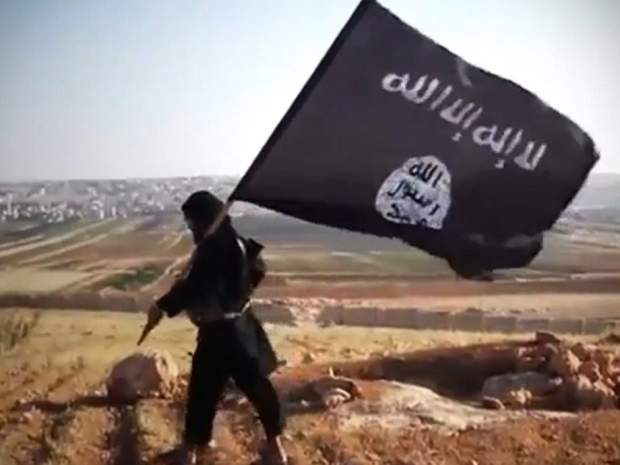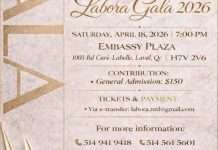The Other is a Partner, Not an Enemy
Ghassan Charbel/Asharq Al Awsat/May 22/17
What do we do with the other who does not resemble us? The other who lives across the sea, in the nearby neighborhood, or the same building. The other who comes from a different history, who drinks from wells other than ours, who sleeps on a different heritage, who reads other books. Can we coexist with him in his loud global village? Is his difference a constant threat to us? Is a clash with him inevitable because the place only fits one color? Should we be separated from him by walls of hate and caution?
What do we do with the other who is different? Do we sever the ties that bind us? Do we protect our identity with isolation? Do we surrender to those stoking fear, paving the way for wars of civilizations, religions and cultures? Do the peaceful moderates withdraw and leave the scene for the extremists to take over the minds and lead the youths to murder and suicide?
In the past two decades, these were pressing questions directed to the Arab and Islamic world. They were asked after the September 11 attacks, again after ISIS seized Mosul and are asked every time a terrorist bloodies a city, whether near or far.
Experience and the days have shown that the Arab and Islamic world is the primary enemy of the terrorists and its main target. Targeting the west was aimed at severing ties they believed were helping the Arab and Muslim countries in weathering the storm.
The Arab and Islamic world is the main target of terrorists. Al-Qaeda has not created as much damage to the west as it did to our countries. The same can be said of ISIS. Creating the clash with the west was aimed at facilitating recruitment and paving the way for taking over the Arab and Islamic world.
We are not exaggerating if we say that we are in the midst of a world war that was launched by reckless terrorism that is hiding behind religion. The bloody bombings have left us with this impression. It has forced the other to fear becoming a target, not just in his security and stability, but also in his right to be different. Experience has shown that targeting the two towers has bloodied the Arab world more than New York. The slaughter of hostages has bloodied the Islamic world more than it has bloodied the countries of the hostages.
The Arab and Islamic world has found itself in a tight spot. At times it found itself in the position of the accused. The factories of terrorists have been set up on its land and their practices are harming their security, stability and interests. Roaming fighters are violating everything. Country borders, principles of coexistence and religion’s essence of tolerance. These countries have found themselves at a loss at how to explain themselves. The other also has forces that are trying to take advantage of this difficult scene.
Taking bold decisions – difficult decisions – was necessary. Leaving the grey area and naming things as they are was necessary. Moving from the war on terrorism to the war on extremism itself was necessary. The culture of extremism births suicide bombers and roaming fighters.
This needed a country that enjoys deep credibility on the Arab and Islamic scenes in order to launch the war on extremism itself and turn it into a constant fixture of its internal and foreign policies and a daily practice in society. The observer of the Riyadh summits quickly realizes that the battle against extremism is the essences of these meetings.
The war on extremism and strengthening the bridge with the other and turning him into a partner in stability and prosperity is the essence of the Saudi-US summit. The same could be said of the Gulf-US summit. This was very clear during the Arab-Islamic-US summit.
It is no easy feat to bring Arab and Islamic leaders to meet US President Donald Trump in Riyadh. The scene was unprecedented and has many connotations. The location has its significance and a message to deliver. The image of Trump addressing the Arab and Islamic leaders was extraordinary indeed. It was predicted that the term of this man will be one of great turbulence in ties with the Arab and Islamic world. Someone however seized the right moment and took action. He prepared papers, data, and reasons and made a move at the right time. This is how the door was open to hold the Riyadh summits.
The man who was addressing the leaders comes from a different heritage. He drinks from different wells. No good can come from turning him into an enemy, which will lead our countries into the trap of extremists. It is not necessary to have similarities between the two sides. Countries have interests and calculations. It is important to create common areas where they can meet. Our countries need what the other possesses in advanced technology that can stay ahead of the times and save their economies. They also need a partnership of interests that encourages them to play a greater role in achieving fair settlements in regional affairs, including the Palestinian-Israeli conflict.
We can say that the first bridge is the war on extremism. The Riyadh summits came to confirm that this decision has indeed been taken and that the war has begun. Starting from this partnership that eases fears and doubts, we can begin building economic, political and defense ties. This is all driven by interests as countries are not charities.
A time will come when you, individuals and countries have to choose: belonging to a future, the price of which should be paid. You cannot forge ahead in the future alone. Partners are needed. The other is also needed. The Riyadh summits have many connotations.
**Ghassan Charbel is the editor-in-chief of Asharq Al-Awsat newspaper.





















